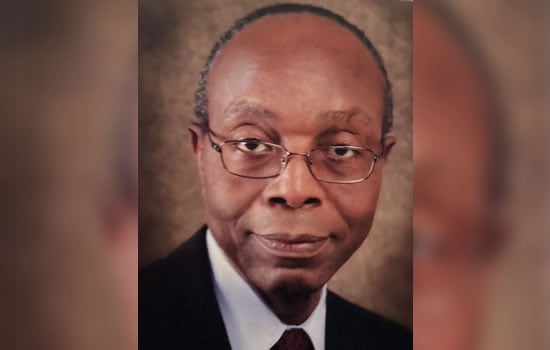Vincent Maduka, the first director-general of the National Television Authority (NTA), has chronicled his journey in the broadcasting landscape under the military regime.
Maduka is a broadcast engineer who worked at Western Nigeria Television (WNTV) from 1961 to 1968. When WNTV became NTA, he served as the first director-general of the television station between 1977 and 1986.
On October 13, 2022, the author presented his memoir titled ‘The Reel Life: My Years Managing Public Service Television’ which tells the African broadcasting history.
The memoir also detailed the history of public broadcasting service in Africa from a Nigerian perspective based on the work and personal account of Maduka.
On February 22, the ace broadcaster held a book reading session of ‘Reel Life’ at the Rovingheights bookstore in Oniru, Victoria Island, Lagos. The session was organised by the Committee for Relevant Art (CORA).
The 87-year-old author spoke about his time with WNTV and how it felt working as a broadcast engineer under the Ibrahim Babangida regime.
“We got phone calls from the government house straight into the newsroom. The practice of Journalism at the WNTV then has been highly debased,” he said.
He added that as a broadcast engineer then, “it was required of us to get certified by a third party, unlike the journalists, newscasters, and creatives who do not have firmly defined qualifications beyond either likening the job or being likened to work at the station.”
“But Bisi Oyeleye decided to formalise the broadcasting profession.
“Under the military, WNTV was able to put down certain rules and guidelines. We were longer required to be censored.
“We were able to undertake adventurous programmes, analysis, discussion programmes, etc. And the military didn’t interfere with us.
“So, this culture of independence of radio, and television had started in WNTV.
“Anyway, I came to Lagos, fairly from the partisanship because as an engineer, I was slightly protected and at federal level, we were close to Dodan Barracks and it was as if they sent people to watch what was going on there.
“So when I came, I was considered to be a rebel because I was coming from a relatively insulated but independent environment.”
Maduka said he returned to Nigeria after he was through with his engineering scholarship in the United Kingdom because the pay was good and that he was elated to work as the first DG of NTA.
“After I was appointed as the first DG of NTA, we couldn’t charge people much on licenses because there were a few people who had TVs,” he said.
“I stayed back in Nigeria to be the DG of NTA because there was more happiness to it.
“After my degree, I did an apprenticeship for two years. When I completed that, I was offered £600 for a permanent job over there. £600 at that time was equivalent to Nigerian money.
“I was living in a flat, where we were sharing a flat. The offer I got from Nigeria was a £950 difference in salary.”
In ‘Reel Life’, Maduka also highlighted his personal experiences with different military governments.
Copyright 2024 TheCable. All rights reserved. This material, and other digital content on this website, may not be reproduced, published, broadcast, rewritten or redistributed in whole or in part without prior express written permission from TheCable.
Follow us on twitter @Thecablestyle

